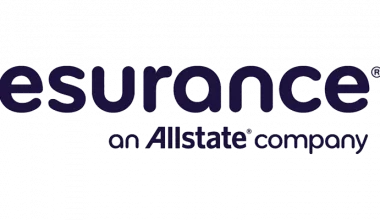Insurance is like a safety net for life’s uncertainties. It comes in various forms, each designed to protect different aspects of our lives. Different types of insurance play a crucial role in providing financial protection and peace of mind in the face of unexpected events. In this article, we explore the different types of insurance, what they cover, and the best insurance plans you can opt for, as well as the factors to consider when choosing insurance coverage.
Different Types Of Insurance
Various types of insurance provide coverage for different aspects of life and protect against unexpected events.
Here are some of the main types of insurance:
#1. Auto Insurance
Auto insurance is required by law in most states and provides coverage for vehicle damage and injuries in case of an accident. There are different types of auto insurance, such as liability insurance, collision insurance, and comprehensive insurance.
#2. Life Insurance
Life insurance provides financial protection for your loved ones in the event of your death. There are two main types of life insurance: term life insurance, which provides coverage for a specific period, and permanent life insurance, which provides lifelong coverage and includes a cash value component.
#3. Health Insurance
Health insurance covers medical expenses and provides financial protection in case of illness or injury. It helps pay for doctor visits, hospital stays, prescription medications, and other healthcare services. Health insurance can be obtained through employers, government programs, or purchased individually.
#4. Homeowners Insurance
Homeowners insurance protects your home and its contents against damage or loss caused by events like fire, theft, or natural disasters. It also provides liability coverage in case someone is injured on your property. Homeowners’ insurance is required by mortgage lenders.
#5. Renters Insurance
Renters insurance is similar to homeowners insurance but is designed for those who rent their homes. It provides coverage for personal belongings, liability protection, and additional living expenses in case of a covered event, such as a fire or theft.
#6. Disability Insurance
Disability insurance provides income replacement if you become unable to work due to a disability or illness. It helps cover living expenses and ensures financial stability during a period of disability.
#7. Travel Insurance
Travel insurance provides coverage for unexpected events that may occur while traveling, such as trip cancellation, medical emergencies, lost luggage, or travel delays. It helps protect your investment in travel and provides peace of mind.
#8. Business Insurance
Business insurance provides coverage for businesses against various risks, such as property damage, liability claims, and business interruption. It can include different types of coverage, like general liability insurance, professional liability insurance, and property insurance.
#9. Cyber Liability Insurance
With the increasing risks of cyberattacks and data breaches, cyber liability insurance helps protect businesses against the financial losses and liabilities associated with such incidents. It covers expenses like legal fees, notification costs, and data recovery.
#10. Professional Liability Insurance
Also known as errors and omissions (E&O) insurance, professional liability insurance protects professionals from claims of negligence, errors, or omissions in the services they provide. Professionals like doctors, lawyers, architects, and consultants frequently carry it.
Different Types Of Insurance Car
Several types of car insurance coverage provide different levels of protection. They include
#1. Liability Coverage
Liability coverage is required in most US states as a legal requirement to drive a car. It helps cover damages for injuries and property damage to others for which you become legally responsible resulting from a covered accident.
#2. Collision Coverage
Collision insurance may cover damage to your car after an accident involving another vehicle and may help to repair or replace a covered vehicle.
#3. Comprehensive Coverage
Comprehensive coverage pays for damages to your vehicle from incidents other than a collision, such as theft, vandalism, or natural disasters.
#4. Uninsured/Underinsured Motorist Coverage
Uninsured motorist coverage pays for your medical costs and repairs to your car when you’re in an accident with a driver who doesn’t have insurance or doesn’t have enough insurance to cover your expenses. Underinsured motorist coverage helps cover the gap when the at-fault driver’s insurance is insufficient to cover your damages.
#5. Personal Injury Protection (PIP)
Personal injury protection coverage pays for medical expenses and other related costs for you and your passengers, regardless of who is at fault in an accident.
#6. Gap Insurance
Gap insurance covers the difference between the actual cash value of your vehicle and the amount you still owe on your car loan or lease. This coverage can be helpful if your car is totaled or stolen and you owe more on the loan or lease than the car is worth.
#7. Rental Reimbursement Insurance
Rental reimbursement coverage helps pay for a rental car if your vehicle is being repaired due to a covered claim. It has a daily limit and a maximum number of days it will cover.
#8. Medical Payments Coverage
Medical payment coverage, also known as MedPay, helps cover medical expenses for you and your passengers regardless of who is at fault in an accident. It can help pay for hospital bills, doctor’s visits, and other medical costs.
#9. Underinsured Motorist Property Damage Coverage
If a driver who has insufficient insurance coverage causes an accident that damages your vehicle, this coverage aids in covering the cost of repairs.
#10. New Car Replacement Coverage
New car replacement coverage is designed for new vehicles and can help cover the cost of replacing your car with a new one of the same make and model if it is totaled in an accident.
Different Types Of Insurance Policy
The different types of insurance policies include life insurance, health insurance, property insurance, auto insurance, disability insurance, business insurance, and liability insurance. These policies provide coverage for various risks and expenses, such as death benefits, medical costs, property damage, vehicle accidents, income replacement, business risks, and legal liabilities. Each type of insurance serves a specific purpose and offers financial protection for individuals, families, and businesses.
Various Types of Insurance Coverage
Various insurance policy providers offer different types of insurance coverage.
#1. Health Insurance Providers
Companies like Blue Cross Blue Shield, UnitedHealthcare, Aetna, Cigna, and Humana offer health insurance policies. These providers offer a range of health insurance plans, including Health Maintenance Organizations (HMOs), Preferred Provider Organizations (PPOs), and Exclusive Provider Organizations (EPOs).
#2. Auto Insurance Providers
Auto insurance policies are available from companies like State Farm, GEICO, Progressive, Allstate, and Farmers Insurance. These providers offer coverage for vehicles, including liability, collision, comprehensive, and uninsured motorist coverage.
#3. Life Insurance Providers
Prudential, MetLife, New York Life, Northwestern Mutual, and MassMutual are just a few of the companies that offer life insurance policies. These providers offer term life insurance, whole life insurance, and other variations to provide financial protection for beneficiaries in the event of the policyholder’s death.
#4. Property Insurance Providers
Companies like State Farm, Allstate, Liberty Mutual, Travelers, and Nationwide provide property insurance, including homeowners and renters insurance. These providers offer coverage for property damage, theft, and other risks related to homes and personal belongings.
#5. Direct Sellers
Direct sellers are insurance companies that sell policies directly to consumers without intermediaries like agents or brokers. Some well-known direct sellers include GEICO, Progressive, and USAA. These companies often provide competitive rates and convenient online platforms for purchasing and managing policies.
#6. Home Insurance Providers
Home insurance policies are offered by companies such as Travelers, Chubb, USAA, and Farmers Insurance. These providers offer coverage for homeowners and renters, protecting against property damage, theft, and liability.
#7. Specialty Insurance Providers
There are insurance providers that specialize in specific areas, such as pet insurance, travel insurance, and wedding insurance. Examples of specialty insurance providers include Trupanion, Allianz Global Assistance, and WedSafe.
#8. Government Insurance Providers
Some insurance policies are provided by government entities. For example, in the United States, Medicare and Medicaid are government programs that provide health insurance coverage for specific populations, such as the elderly and low-income individuals.
#9. Business Insurance Providers
Companies like The Hartford, Chubb, Hiscox, Nationwide, and Travelers offer business insurance policies. These providers offer various types of coverage for businesses, including general liability insurance, commercial property insurance, and workers’ compensation insurance.
#10. Disability Insurance Providers
Disability insurance policies are available from providers like Guardian, Mutual of Omaha, Principal Financial Group, MassMutual, and Northwestern Mutual. These providers offer coverage to replace income in the event of a disability that prevents the policyholder from working.
Different Types Of Insurance Plans
There are various types of insurance plans available to meet different needs. These include health insurance plans, life insurance plans, auto insurance plans, property insurance plans, business insurance plans, crop insurance plans, travel insurance plans, and disability insurance plans. Each type of plan offers coverage for specific risks and expenses, such as medical costs, property damage, liability claims, and income replacement.
Benefits Of Different Types Of Insurance Plans
Having different types of insurance plans provides various benefits:
#1. Financial Protection
Insurance plans protect you from catastrophic financial loss due to unexpected events. Auto insurance covers vehicle damage, health insurance pays for high medical bills, and life insurance provides funds for your family.
#2. Access to Comprehensive Healthcare
Health insurance plans provide access to a wide range of healthcare services, including preventive care, doctor visits, hospital stays, prescription medications, and specialist consultations. This ensures that you receive the necessary medical attention without incurring high out-of-pocket costs.
#3. Cover Different Risks
Different types of insurance cover different risks in your life. Auto insurance covers vehicle-related risks, while homeowners insurance protects your house and belongings. This tailored coverage matches your specific needs.
#4. Meet Requirements
Some types of insurance plans are required by law or lenders. Auto insurance is mandatory in most states, and mortgage lenders require homeowners insurance. Not having the required coverage could mean fines or penalties.
#5. Coverage for Dependents
Many insurance plans also cover your dependents, protecting your entire family. For example, health insurance plans cover your spouse and children. Life insurance benefits can support them if something happens to you.
#6. Affordability
Insurance plans help manage the cost of healthcare services. By paying regular premiums, you can spread out the financial burden of medical expenses over time. Additionally, insurance plans often negotiate discounted rates with healthcare providers, reducing the overall cost of care.
#7. Preventive Care Coverage
Many insurance plans cover preventive services at no additional cost. This includes vaccinations, screenings, and annual check-ups. By promoting preventive care, insurance plans help detect and address health issues early, potentially avoiding more serious and costly conditions in the future.
#8. Legal Protection
Liability coverage in various insurance plans, such as auto insurance and homeowners insurance, provides legal protection if you are held responsible for causing harm or damage to others. It covers legal expenses, settlements, or judgments, protecting your financial well-being.
#9. Risk Management for Businesses
Business insurance plans protect businesses from financial losses due to property damage, liability claims, or interruptions in operations. This allows businesses to recover quickly from unexpected events and continue their operations.
#10. Income Protection
Disability insurance provides income replacement if you are unable to work due to a disability or illness. It ensures that you can continue to meet your financial obligations and maintain your standard of living during a period of disability.
Different Types Of Insurance Cover
Different types of insurance coverage include: health insurance covers medical expenses; life insurance provides death benefits; homeowners insurance covers home structure; auto insurance covers damages; renters insurance covers personal belongings; disability insurance provides income replacement; travel insurance covers unexpected events; business insurance covers risks; and liability insurance covers legal liabilities.
Factors to Consider When Choosing Insurance Cover
When choosing different insurance coverages, there are several factors to consider. Here are some factors to keep in mind:
#1. Coverage Needs
Assess your specific needs and determine the type and level of coverage required. Consider factors such as your health condition, financial obligations, property value, or potential liabilities.
Evaluate the costs associated with insurance coverage, including premiums, deductibles, co-pays, and out-of-pocket expenses. Compare different plans to find a balance between affordability and adequate coverage.
#3. Network and Providers
Check the network of doctors, hospitals, and healthcare providers associated with health insurance plans. Ensure that your preferred providers are included in the network or that out-of-network coverage is available if needed.
#4. Policy Terms and Conditions
Read and understand the terms and conditions of the insurance policy. Pay attention to coverage limits, exclusions, waiting periods, and any additional benefits or riders offered.
#5. Financial Stability and Reputation
Research the financial stability and reputation of the insurance company. Look for ratings and reviews to ensure that the company has a strong track record of fulfilling claims and providing reliable customer service.
#6. Legal and Regulatory Requirements
Understand any legal or regulatory requirements related to insurance coverage. This could include mandatory insurance requirements for certain activities or compliance with specific regulations.
#7. Customer Support and Accessibility
Evaluate the customer support and accessibility of the insurance provider. Consider factors such as ease of filing claims, availability of online tools or mobile apps, and responsiveness to customer inquiries.
#8. Risk Assessment
Evaluate your risk profile. Consider your lifestyle, occupation, location, and other factors that may affect the likelihood of needing insurance coverage. Adjust your coverage choices accordingly.
#9. Pre-existing Conditions
If you have pre-existing health conditions, check if the health insurance policy covers them and if there are any waiting periods or additional costs associated with them. Ensure that your specific healthcare needs are adequately covered.
#10. Discounts and Savings
Inquire about any available discounts or savings opportunities. Some insurance providers offer discounts for bundling multiple policies, maintaining a good driving record, installing security systems, or other qualifying factors.
What Is The Best Type Of Life Insurance?
The best type of life insurance depends on individual needs and preferences. Whole life insurance provides lifelong coverage with a cash value component, while term life insurance offers coverage for a specific term. Universal life insurance offers flexibility in premium payments and death benefit amounts, and variable life insurance allows policyholders to invest the cash value. Indexed universal life insurance ties the cash value to the performance of a stock market index. Choosing the best type of life insurance involves considering personal circumstances, financial goals, and budget.
What are the 7 Principles Of Insurance?
The seven principles of insurance are utmost good faith, insurable interest, proximate cause, indemnity, subrogation, contribution, and loss minimization. These principles govern the relationship between the insured and the insurer, ensuring transparency, fairness, and proper risk management in insurance contracts.
Conclusion
Car insurance covers various levels of protection, including liability. Liability coverage covers injuries and property damage from accidents. Different insurance plans protect against catastrophic loss, provide access to services, cover different risks, and meet legal or lender requirements, ensuring comprehensive coverage for various expenses. Insurance coverage includes health, life, homeowners, auto, renters, disability, travel, business, and liability. Factors to consider include coverage needs, costs, network, and policy terms and conditions.
- Cheap Small Business Insurance: Best of 2023
- Disability Insurance for Self-Employed: Cost, Coverage & Best Options
- CHEAP INSURANCE FOR NEW DRIVERS: Best Policies In 2024
- CHEAPEST LIFE INSURANCE COMPANIES OF 2023
- BEST CAR INSURANCE YOUNG DRIVERS FOR 2023






